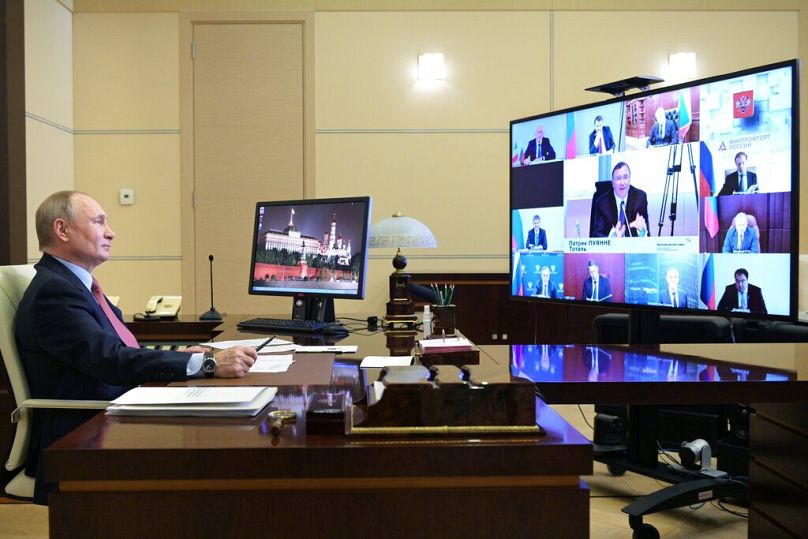China, Russia and Turkey are all mentioned as active meddlers in French politics and society in assessment that draws a line between free and authoritarian global blocs.
Foreign interference in France has become a "protean, omnipresent and lasting" threat, ranging from espionage to the use of cyberspace or information manipulation operations, with Russia and China as the main players, according to an annual report by the French parliamentary delegation that scrutinises government intelligence policy.
 ADVERTISEMENT
ADVERTISEMENT
 ADVERTISEMENT
ADVERTISEMENT
"Threats of foreign interference are at a high level in a tense and untethered international context," the report's authors said.
While the intelligence services can use "various means to thwart foreign interference", these tools are "not sufficient on their own in the long term", they conclude.
The parliamentarians proposed the introduction of "ad hoc legislation to prevent foreign interference based on the model of the US law", and the use of asset freezes for those engaged in actions detrimental to national unity or designed to further the interest of a foreign power.
They also suggest "a European response" and believe that these various measures could be grouped "in a bill dedicated to the fight against foreign interference".
A new world order
The delegation points out that this threat has "taken on a new dimension in recent years, due first and foremost to a "radical change in the geopolitical context".
"We have moved abruptly from a world of competition to one of confrontation, with authoritarian regimes on one side and Western democracies on the other," write the authors of the report.
This divide between the West and the rest of the world is, they say, "the dominant feature of the current period".
Added to this is the digital revolution, with cyberspace "becoming a privileged field of confrontation and competition between states", and the policies of influence and espionage that constitute "hybrid threats".
The delegation points the finger at "large-scale information manipulation campaigns", a "new form of foreign interference" which, in its view, has taken on "unprecedented proportions".
The authors of the report insist that "fake news is the weapon of a war waged against the West".
They cite the 2016 US presidential election and the UK referendum on Brexit, both of which they say were "the subject of foreign digital interference campaigns on social networks and media". On the French front, they point to the "Macron Leaks" affair that preceded the second round of the 2017 presidential election.
The big three
The authors cite Russia as a major player and describe its "signature" and modus operandi.
These include infiltration, the appointment of former European leaders such as former Prime Minister François Fillon and former German Chancellor Gerhard Schröder to the boards of directors of major Russian groups, and the manipulation of information.
On this last point, the delegation notes that France's 2017 closure of Kremlin-backed outlets Russia Today and Sputnik has "reduced the scope of Russia's information war".
China, another active player, has a "united front" operation, a "political strategy and a network of public and private institutions and key individuals under the control of the Chinese Communist Party".
The Chinese diaspora in France, comprising some 600,000 people, plays an important role as well.
Turkey is also keen to interfere, according to the delegation, with the aim of "controlling the Turkish diaspora as a relay for the ideas of the government in Ankara, i.e. hostile to the Kurds and Armenians".
The report also highlights "religious practice" as a "powerful lever for promoting a political ideology", with foreign actors financing places of worship in France and the secondment of imams to French mosques who have "enabled Turkey to influence Islam in France".
Another Turkish modus operandi, according to the delegation, is "political entryism through participation in local and national elections", and an active presence on social networks to spread messages hostile to legislation.
The delegation deplores the "naivety" of elected representatives, senior civil servants, businesses and academics in the face of foreign interference.
At his hearing in February, the Director General of Internal Security, Nicolas Lerner, warned MPs and senators against attempts to approach foreign intelligence agents, particularly Russians under diplomatic cover, for espionage or interference operations.











